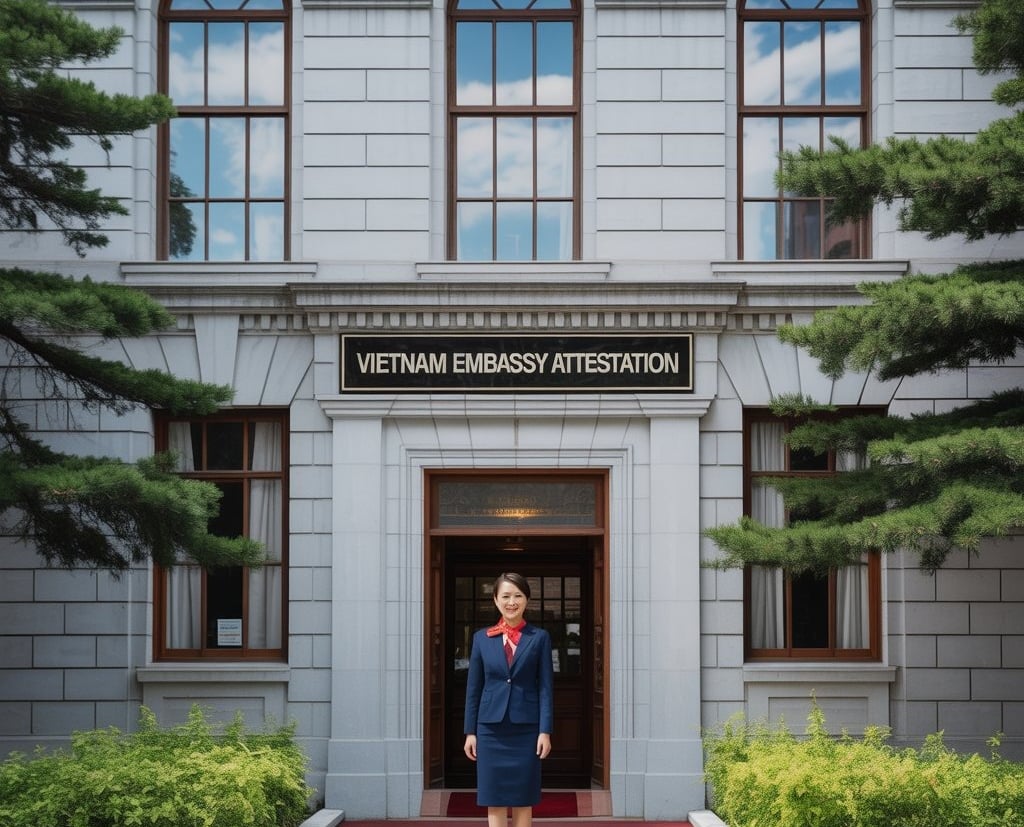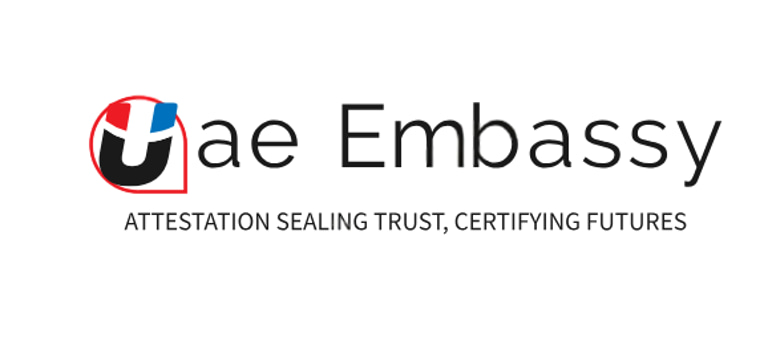Vietnam Embassy Attestation: 2025 Guide
Discover the complete process and requirements for Vietnam embassy attestation in our 2025 guide. Learn about embassy services in Vietnam and the necessary documents for successful attestation.
10/11/20257 min read


Introduction to Embassy Attestation
Embassy attestation plays a crucial role in the validation and verification of documents intended for use in a foreign country, specifically Vietnam. Essentially, this process involves obtaining an official endorsement from the Vietnamese embassy or consulate, confirming that the documents meet specific legal standards and requirements. Embassy attestation is particularly significant for individuals and organizations dealing with various administrative processes in Vietnam, such as visa applications, employment contracts, business registrations, and other legal matters.
The need for embassy attestation arises from the necessity to establish the authenticity of documents. This is especially important in a globalized world where cross-border transactions and interactions are common. The attestation process aids in eliminating any doubts regarding the legitimacy of the submitted documents, ensuring that they are recognized by Vietnamese authorities. This safeguard not only protects the interests of those submitting the documents but also enhances transparency in administrative dealings.
Organizations may require embassy attestation for various purposes, including educational qualifications, commercial agreements, and personal documentation such as marriage certificates and birth certificates. These documents often need to be validated by the Vietnamese embassy to facilitate expeditious processing within the legal framework of Vietnam. Furthermore, individuals applying for education or employment opportunities in Vietnam must ensure that their academic and professional credentials are properly attested to comply with the country's regulations.
In summary, understanding the significance of embassy attestation is essential for anyone looking to operate or engage in legal proceedings in Vietnam. The process serves as a crucial step in guaranteeing that documents are recognized as valid and credible, thus fostering smoother interactions with Vietnamese legal and administrative entities.
Understanding the Need for Attestation in Vietnam
Attestation plays a crucial role in the process of validating documents essential for individuals and businesses alike when dealing with international matters in Vietnam. The attestation of documents serves to confirm their authenticity, which is critical for various purposes, including the recognition of educational qualifications, business-related documentation, and legal papers.
For Vietnamese citizens residing abroad, attestation is often a necessary step when seeking employment or pursuing further education in foreign countries. It ensures that their educational achievements and professional qualifications are recognized by foreign institutions and employers, which can significantly impact their career prospects. Moreover, individuals may require the attestation of personal documents, such as marriage certificates or birth certificates, to navigate legal systems in other nations effectively.
On the other hand, foreign citizens aspiring to live or work in Vietnam must also adhere to the attestation requirement for their documentation. Whether it is work permits, residency applications, or educational degree verification, the process of attestation assures the Vietnamese authorities of the legitimacy of the documents submitted. This not only aids in the swift processing of applications but also fortifies the integrity of the immigration and labor systems within Vietnam.
In addition to educational and professional contexts, attestation is pivotal in the realm of business. Foreign companies seeking to establish operations in Vietnam must provide attested corporate documents to comply with local regulations. The verification process assures Vietnamese partners and authorities of the credibility and legal standing of these foreign entities, fostering trust and facilitating smoother business transactions.
Thus, understanding the need for attestation in Vietnam is essential for both Vietnamese citizens abroad and foreign nationals wishing to partake in the opportunities that Vietnam offers. By grasping this concept, individuals and businesses can navigate the complex processes related to international document verification with greater ease and confidence.
Documents Required for Attestation
The attestation process for documents in Vietnam necessitates a thorough understanding of the specific paperwork required. Various types of documents may need attestation depending on the purpose of their use. Common categories include educational certificates, marriage certificates, birth certificates, and legal documents. Each type has distinct requirements that must be adhered to for successful attestation.
For educational certificates, individuals should provide original diplomas, transcripts, and relevant authentication from the issuing academic institution. Additionally, these documents may need to be notarized before submission. Notarization serves to verify the authenticity of the documents and the signature of the issuer. Following this, legalization from the Ministry of Education and Training (MOET) may be necessary to ensure that the documents are recognized by the Vietnamese embassy or consulate abroad.
Marriage and birth certificates similarly require original copies, which should also be notarized. In some cases, these documents may need to be translated into Vietnamese, and both the original and translated versions should be presented for attestation. If the marriage certificate was issued abroad, extra steps may be needed, including obtaining an apostille or additional verification from a foreign authority.
Moreover, legal documents, such as contracts or business registrations, must not only be originals but also prepared with careful attention to detail. It is advisable to have these documents evaluated by a legal professional before they are presented for attestation. The requirements can vary depending on whether the documents are to be used within Vietnam or for international purposes, therefore consulting the specific embassy’s or consulate’s guidelines is recommended.
In summary, preparing the appropriate documents is crucial for the attestation process in Vietnam. Ensuring proper notarization and understanding varying requirements for different types of documents will facilitate a smoother attestation journey.
Step-by-Step Process of Attestation
The attestation process for documents intended for use in Vietnam encompasses several essential steps. Initially, applicants must gather all necessary documents that require attestation. This typically includes educational certificates, legal documents, and personal identification. It is crucial to ensure that these documents are original, as photocopies may not be accepted. Furthermore, documents not in the Vietnamese language should be accompanied by certified translations to ensure they meet local regulations.
Once the documents are prepared, the next step involves submitting these to the relevant authorities. Depending on the type of document to be attested, the submission may be directed to different agencies. For educational certificates, this could involve the Ministry of Education and Training, while legal documents might require verification by the Ministry of Foreign Affairs. Applicants should also check if there are any specific requirements particular to their documents or circumstances.
After submission, applicants will typically receive a receipt that outlines processing times and fees. Generally, the attestation process may take anywhere from a few days to several weeks, contingent upon the volume of requests and the specific authorities involved. Applicants should be prepared to pay a fee, which varies based on the type of document and the urgency of the service requested. It is advisable to confirm the official fee schedule on the respective agency's website to avoid discrepancies.
Upon completion of the attestation process, the applicants will receive their documents back, now bearing the official seal or signature signifying that they have been verified. It is vital to review the documents to confirm that the information is accurate and that they are complete. This meticulous approach ensures that the attested documents will be valid for their intended use in Vietnam.
Common Challenges and Solutions
Seeking embassy attestation can be a complex process, often fraught with various challenges that applicants may face along the way. One of the most common issues is miscommunication with the embassy, which may lead to misunderstanding the requirements or the necessary documents for attestation. Such miscommunication can cause delays, resulting in increased stress for applicants. It is advisable to meticulously review the embassy's official website or contact their office directly to clarify any uncertainties before submission.
Additionally, missing documents pose a significant hurdle in the attestation process. The requirements for Vietnam embassy attestation can be stringent and detailed, and any omission may lead to the rejection of the application. To mitigate this risk, applicants should create a comprehensive checklist of all required documents and ensure that each item is carefully gathered and verified before submission. Utilizing a documents management system can further streamline this process, making it easier to track needed items and their statuses.
Delays are another common challenge encountered during the embassy attestation process. Factors such as high application volumes, holidays, or unforeseen circumstances can lead to longer processing times than anticipated. To manage delays effectively, applicants should consider submitting their documents well in advance of any deadlines. Engaging a professional service that specializes in embassy attestation can also prove beneficial, as they often have established relationships with embassies and can help expedite the process.
In essence, addressing these challenges proactively by ensuring clear communication, thorough documentation, and timely submission can significantly enhance the experience of obtaining Vietnam embassy attestation, ultimately reducing stress and potential setbacks.
Post-Attestation Procedures
Once attestation of documents has been successfully obtained from the Vietnam Embassy, it is essential to understand and follow the subsequent procedures, which may vary based on the intended purpose of the documents. Depending on whether the documents are to be used for personal, educational, or professional reasons, additional steps may be required to ensure compliance with Vietnamese regulations.
One crucial step often involves translating the attested documents into Vietnamese. It is advisable to engage a certified translator familiar with legal terminology to ensure accuracy and acceptance, especially if the documents pertain to legal matters, academic enrollment, or business transactions. The translation should preferably be done after the attestation since the official status of the documents needs to be reflected accurately in the Vietnamese version.
In certain cases, further verification or legalization may be required by local authorities in Vietnam, particularly for documents such as marriage certificates or academic diplomas. For instance, educational institutions may need to verify the authenticity of academic documents through the Ministry of Education and Training in Vietnam. Similarly, for legal documents, registering them with the appropriate government agencies or notaries in Vietnam may be necessary.
For individuals working in Vietnam or planning to establish a business, it is imperative to check with the relevant government agency regarding any additional registrations or permits that are necessary. This could include work permits, residence registrations, or business licenses, all of which may require the attested documents.
Understanding these post-attestation procedures is vital for a seamless experience in utilizing the documents within Vietnam. It is recommended to consult with authoritative resources or legal experts to ensure full compliance with all formalities. This careful approach will facilitate smooth processing and recognition of the attested documents in various institutional and administrative dealings in Vietnam.
Conclusion and Additional Resources
The attestation process through the Vietnam Embassy is a critical step for individuals and businesses seeking to validate documents for use in Vietnam. This process not only ensures that foreign documents are recognized by Vietnamese authorities but also provides the necessary legal protection and authenticity required for various transactions and processes within Vietnam. Understanding the intricate details of the attestation process is essential for a smooth experience, enabling applicants to fulfill legal requirements swiftly and efficiently.
This guide has outlined the key aspects of the Vietnam Embassy attestation process, including the specific requirements, steps involved, and common challenges that may arise. We have discussed the importance of submitting accurate documents, providing the necessary translations, and adhering to the embassy's guidelines. By following these steps, applicants can significantly mitigate delays and complications. It is crucial to consult with professional consultants or legal advisors when in doubt to ensure adherence to the current regulations established for document validation in Vietnam.
For those in need of further information, the Vietnamese embassy's official website serves as an invaluable resource. Prospective applicants can find necessary forms, detailed guidance on submission procedures, and additional insights into the attestation of documents. Additionally, it is advisable to directly contact the embassy officials or consult qualified service providers who specialize in the attestation of documents to receive personalized assistance tailored to specific needs. Together, these resources can empower individuals and entities to navigate the Vietnam Embassy attestation process with confidence and clarity.
